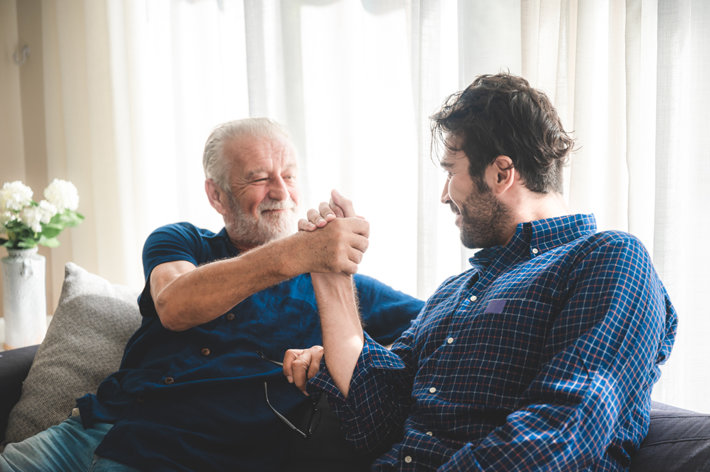Ways to Help Someone in Recovery

A recovering addict is a lot like a newborn, trying to learn and experience so many things for the first time, and everything is new in his reality. The food tastes new, lots of emotions are new, the sunrise that he sees every day suddenly looks different in his eyes, music has a different meaning and effect on him, and he will start to enjoy the simplest things that, for a fact, didn’t affect him before.
When someone is in recovery, and especially in the beginning, there are certain things to say to help him through this early phase of recovery. Things like “I love you” and “We will do this together” go a long way because the person recovering may be going through many emotional ups and downs and doubts. They can feel weak and have little to no motivation, so giving them a boost with positive energy will help them overcome their obstacles.
There are times, however, when addicts who are early in recovery may be frustrating to deal with. While supporting them is necessary, it’s important not to turn them into a victim. This behavior often happens early in recovery, and some recovering addicts may later use it as an excuse to use again. It’s important to realize that if they do use again, it was their choice. Your communication did not cause them to relapse.
If a relapse does occur, the most important thing is to find out quickly and get them back to treatment as soon as possible.
During a relapse or during active addiction, things that make sense to you will not make sense to them. What you see is not what they see. Hallucinations can be a part of withdrawal, so you have to understand what’s happening with them. The room can feel comfortable to you but super hot to them. Each drug can have a different effect on the user. Some drugs will cause the user to sleep a lot, and other drugs can cause insomnia, while some can cause the person to talk nonsense, and some can cause the person to stay quiet and not say a word.

In my opinion, a huge thing you can do is help the person extrovert by doing anything that will make him put his attention outward. The recovering addict is living in his mind, and he needs to come out of it somehow. You can always take the person for a walk and convince him to do so if necessary. Something that I found to work well is to take the person to water the plants outside. By doing this, most of the person’s senses are busy doing something natural. Help him push through it little by little without too much pressure.
Another important thing to do to support someone in recovery is to educate yourself on the drug or drugs the person has been using. Learn about the withdrawal symptoms, what reactions there might be and what can be done to ease the symptoms.
It’s important to seek professional help anytime you suspect a loved one may be withdrawing from drugs. Some drugs, such as alcohol and benzodiazepines, are extremely dangerous and require medical intervention when withdrawing. Other drugs can cause a range of other symptoms, which, unless you have experienced yourself or have a lot of experience, can seem very disturbing.
When in doubt, or if something happens that could be dangerous to the person, always get medical help immediately. Do not take big chances with your loved ones.

Few people are able to stop using drugs or alcohol without professional help, and the point is not only to get through the symptoms of withdrawal but to stay clean after leaving rehab. Many people go through a detox to get clean, but they don’t know what to do to stay clean afterward. The environment and the people around you play a big part in recovery. The things the person in recovery does, the people he or she hangs out with, and what is done in their spare time play a big part in recovery.
Recovery can be a slow process, and it can take time. Different people react in different ways to treatment, and the results vary depending on the drug(s) taken and the duration of use, but always remember that the support you give is important. Simply being there and providing encouragement can go a long way to helping someone on the path to sobriety.
Finally, I have to say that quitting drugs or alcohol is one of the hardest things a person can do. It plays with your emotions and thoughts. So many times, it seems impossible for an addict to see that he can live a sober life, so, as I said, I recommend going to rehab and getting professional help so that sobriety can last for a lifetime.


